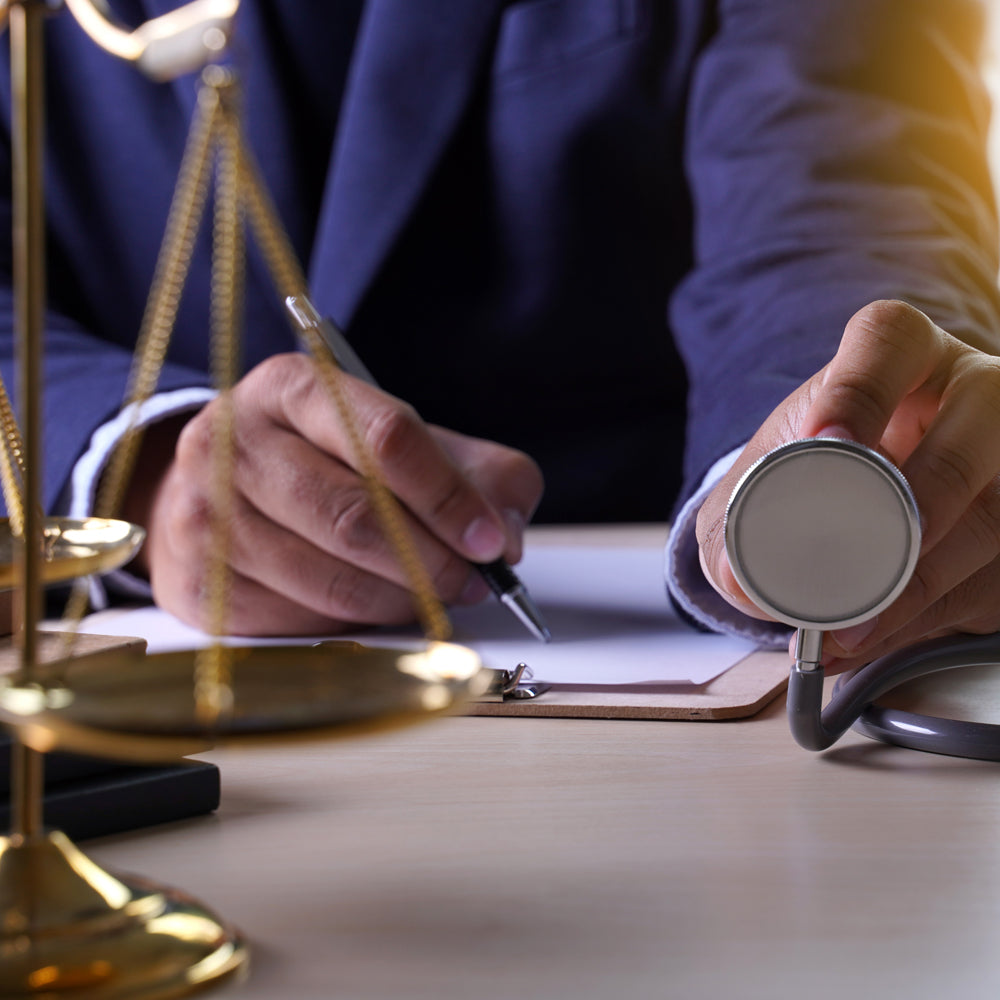
How to Know Who to Sue in a New York Defective Product Claim?
If you have used a product that caused injury to you through no fault of yours, you may be entitled to claim compensation. Understanding that you have the right to sue and determining exactly who to sue often turn out to be different propositions though. This is because in most New York defective product claims, it is not always entirely clear who should be liable for compensation.
Should you pursue remedy against the manufacturer that carried out the production? Or does your remedy lie with the retailer that failed to advise you properly on safe use of the product? Getting these questions right will often go a long way to determining the success of your claim. And in order to answer them correctly, you will require the services of a qualified New York defective product claim lawyer.
Our product liability lawyers at Oshan and Associates are some of the best at what they do. Our depth of knowledge and extensive experience in the area has made us formidable opponents to irresponsible manufacturers and retailers. We have helped many consumers like you recover the compensation they deserve.
In this article, we explain what you need to understand about the process of filing New York defective product claims. Where does your remedy lie in these cases?
What type of defective product claim do I have?
Defective product claims can be split into three broad categories: Defective product manufacture, Defective product design, Failure to provide adequate warnings or instructions concerning the proper use of the product.
Understanding these categories will help you determine whether you have a valid claim. This will also help you map out the best strategy to use in presenting your case. It is important to note that these claims place a burden of proof on you, the complainant. You need not only show that the product is defective, you must also show that the defect caused your injury.
Defective product manufacturer
This is the most obvious type of product liability claim. A defectively manufactured product is one that had an error right from the point of manufacture. Hence, the product is flawed.
Flaws could arise as a result of problems at the factory while it was being manufactured, or because a step in the manufacturing process was skipped. As a result, the product in question and indeed the whole batch ends up different from the others.
For this kind of claim, you must prove that the defect in the manufacturing process was responsible for your injury. For instance, assume you bought a bottle of cooking oil from a tainted batch that contained contaminants. On eating the meal prepared with the oil, you developed food poisoning.
In this situation, your manufacturing defect claim would require that you show the contaminant in the oil was responsible for the food poisoning. It must not be due to some other ingredient in the food that you might have reacted adversely to.
Defective product design
For this type of defective product claim, the product’s design is inherently defective. The design would essentially be the primary cause for the flaws leading to your injury.
What this means is that the defect did not arise from any error in the manufacturing process. Rather, it would mean that the entire line of products was inherently dangerous as it was produced to flawed specifications.
Thus, the design was flawed, even though the products were perfectly made according to the manufacturer’s specification.
Failure to provide adequate warnings or instructions
This type of defective product claim involves a failure to provide adequate instructions or warnings about the proper use of the product. This means that the product is dangerous in some way that is not obvious to the user. Using the product will require the user to exercise some caution or take some protective steps beforehand.
Thus for a claim to lie here, you need to show that the failure to provide adequate warnings led to the injury. Take flu medication for instance. A common side effect of such medication is that users may feel drowsy. But if no caution as to possible drowsiness is provided, you can sue if you fell asleep at the wheel of your car and had an accident after taking the drug.
Who should I hold liable in my defective product claim?
Under the Consumer Protection Act, manufacturers, suppliers, distributors, and retailers can be sued for a defective product or defective component in a product.
This means that for that defective product, you can name any one of the people its chain of distribution, or all of them. From the design stage to the final consumer, everyone in that chain is liable to be sued. Here’s a closer look at the liability of each one of them:
Manufacturer
The manufacturer could be a large corporation, a small group of individuals or even a sole individual working out of their garage. The law allows you to sue anyone of them. Even if the product has a group of manufacturers responsible for its different components, you can include every one of them in your product liability claim.
You should also include any additional participants in the design or marketing of the product. This should especially be the case if they are a separate entity from the manufacturer, such as external consultants or contractors.
Retailers
The retail store where you purchased the defective product is also fair game. Though they may have had nothing to do with the designing or manufacturing of the product they should still be added as defendants.
You should keep the following in mind when naming the retailer:
- You don’t have to be the actual buyer of the defective product. If you were injured by a defective lawn mower that you borrowed from your neighbour, the fact that it was borrowed does not stop you from suing.
- You don’t have to be the product user. Even if you were injured by a flying blade from your neighbour’s defective chainsaw, you can file a defective product claim.
Wholesalers and distributors
All wholesalers and distributors through which the product moved can be liable in your New York defective product claim. This would especially be useful in cases where they received reports as to the harmful nature of the product but ignored them.
Since they are all part of the defective product’s chain of distribution, they should notify the manufacturer and stop distribution. If they don’t, they are potentially liable.
How to establish defective products claims
To establish a defective product claim, you have to show that you were injured and that the injury happened because of the defective product. Proving these claims is no easy task. So you have to be deliberate about how you handle yourself after the incident.
Immediately after the injury happens, you should immediately seek medical treatment. Inform the attending physician on the source of your injury as well.
You should also gather as much evidence as you can. For instance, keep the defective product. You should preserve it so it can be examined by an expert and proved to be defective.
Preserve all your medical records and bills too. These records will prove that you were indeed injured and had to undergo treatment. If you have had to sit out work due to the injury, you can show your lost wages by securing a letter from your employer. The letter will show your employment status and what you are losing hourly.
How to recover compensation in defective product claims
The New York defective products claim has a statute of limitation for defective products which requires that you file a claim within a specified time in order for the claim to be valid. The statute of limitation starts ticking once you know that a manufacturer’s product is the cause of the injury. From the time you have ascertained the cause of your injury, you have three years to file a claim. Once this time lapses, you will no longer have a valid claim.
What kind of compensation can you recover in defective product claims?
What you can recover as compensation in a defective product claim falls into two basic categories: compensatory and punitive damages.
Compensatory damages aim to compensate you for your injuries. The aim is to to restore you, as much as is possible, to the condition you were in before your injury. While it can obviously be impossible to restore you to your pre-injury condition, the compensaton will reimburse you for your financial losses. It will also include compensation in money terms for any emotional or permanent hurt you have suffered, such as lost earning capacity.
You may also be able to recover punitive damages if you can prove a flagrant disregard for the safety of individuals in the making or distribution of the product. The punitive damages you can recover are dependent on factors such as:
- The awareness of the product’s potential for severe harm
- The length of time of the misconduct
- Attempts made at hiding the misconduct
- The amount of profit gained while participating in the misconduct
Hire a New York defective product claim lawyer to help you?
New York defective product claims can be a complex process, and one with really high stakes. You are better off reaching out to a highly skilled lawyer as soon as you are hurt, rather than going it alone.
At Oshan and Associates, we will take the time to sit with you, carefully review your case and help you determine what type of compensation you may pursue. If you have been hurt by a defective product, please reach out to us today on 206-355-3880 or click here to book a free consultation.
Leave a comment
Comments will be approved before showing up.
Also in Personal Injury Blog

Seeking Legal Help While Incarcerated

Truck Accident Lawyer - Road Accident Attorney

